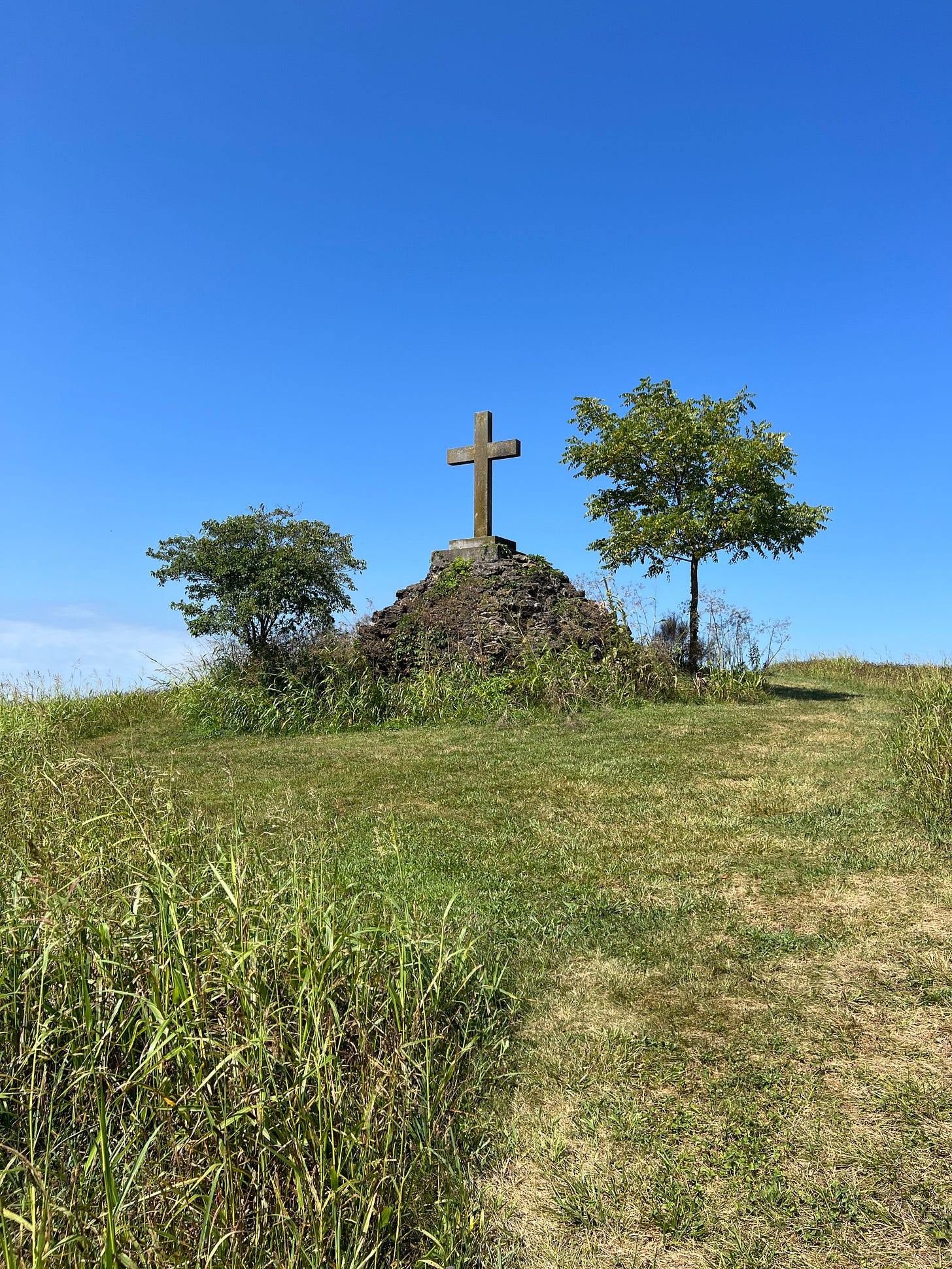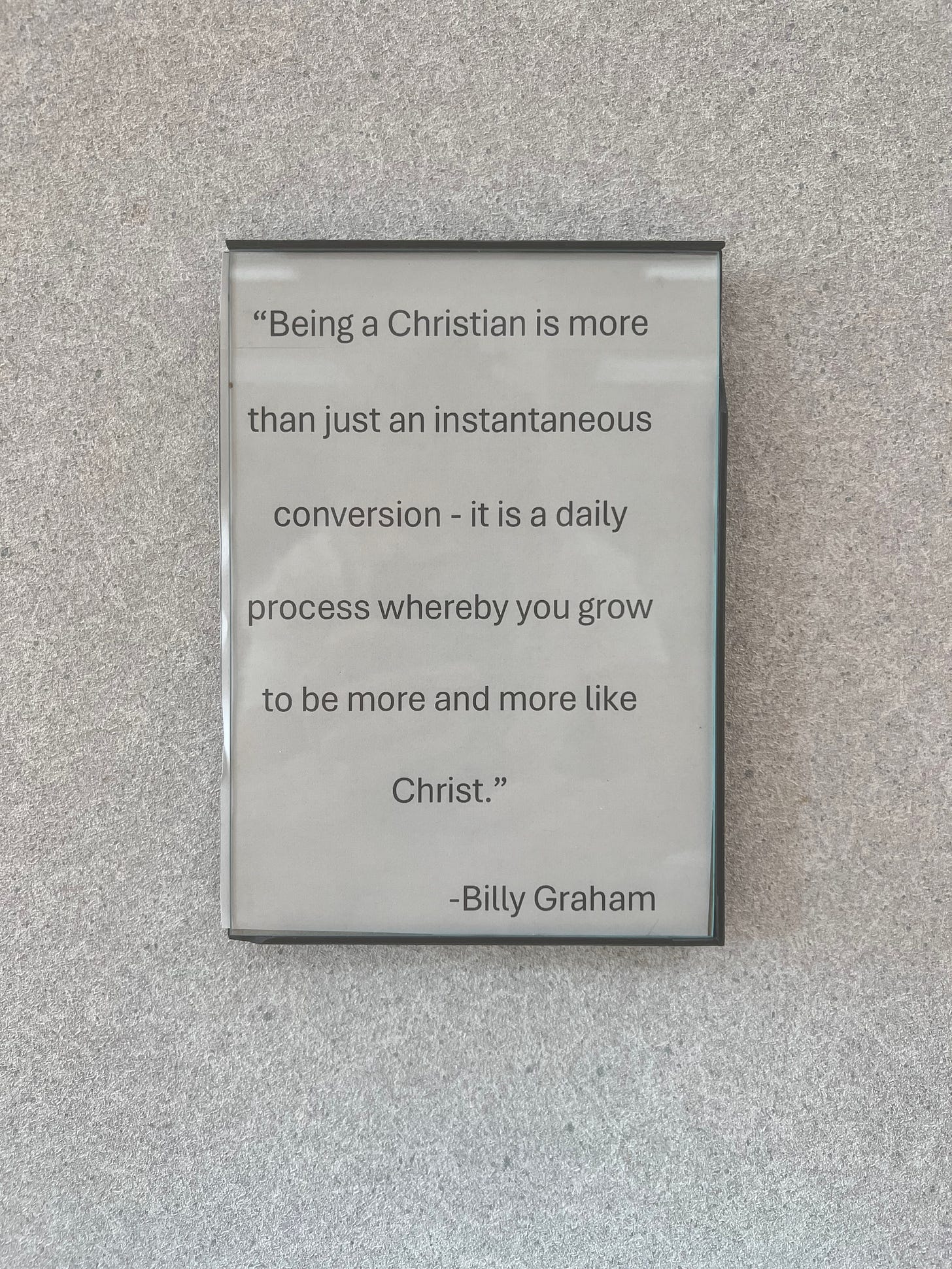In 2012, the British psychoanalyst Adam Phillips wrote a book called “Missing Out.” Its subtitle is “In Praise of the Unlived Life.” The paths we have not chosen, Phillips argues, are as much a part of our lives as the paths we did decide to take. The fantasies of each person — the things we dream of, ruminate on, and wish for — “are often more important to us than our so-called lived lives.” For every self we have decided to become, there are unliving selves beneath the surface. When we get a glimpse of such an unliving, or alternate self, or the chance to live it for a brief time, the longing it ignites can be unbearable.
For some time now, there is a life I have not been living. And the only way I can describe it is that it is a more radically Christian life. It is a life in touch with the sacramentality of nature. A life in which I am able to partake of Christ’s Body and Blood every day. A life of communion and longterm commitment to detachment. It is a rural life, a life unafraid of bugs, sun, heat, or ignorance of the news cycle.
At a monastery in Kentucky two weeks ago I began to glimpse this life. And the longing it has ignited is indeed unbearable. It’s a sort of sickness, a searing feeling in the belly that I know my time is short, and I had better spend it worshipping the Lord. I had better spend it feeling His peace, rather than being blown about by every Twitter wind or knocked down by the rage of one day’s conflict. I want to seek peace and pursue it. I am afraid I am becoming too citified. I want to get out of here before I forget who I am.
I do not want to become the kind of person who neurotically switches on the air conditioner the second the outside temperature goes above 65. I don’t want to pump myself full of allergy medication as soon as I feel a sneeze coming on. I don’t want to reflexively down a Xanax instead of taking time to breathe, pray and discern the next right thing to do. I don’t want to become, as my fellow upstate New Yorkers used to say, a “citiot.”
On one of my afternoons in Kentucky, I went into the woods and sat down at a stream. I was praying about something that could only be spoken deep in the woods, far from any embarrassment. As I got out my rosary and booklet with the Nicene Creed (which I still can’t remember when I say it by myself), a small blue butterfly landed on the stone beside me. It sat there, patiently opening and closing its wings. Uncannily, after about twenty minutes and the last line of the Creed, which I like to finish with, it flew away. When I told one of the monks about this his eyes twinkled in recognition. “That was God,” he said. “If you stick around here long enough, you’ll start to notice more things like that.”
I spoke to another monk the next evening about what I had seen, and how it reminded me of the passage in “The Benedict Option” which describes how in the medieval imaginary, the world was seen as enchanted and charged with spiritual meaning. “It still is,” he answered. “People just have to believe in it.”
I saw a similar sense of lightness and humor in many of the monks, a good number of them elderly. It seems, paradoxically, that living a strict and rigorous life produces a kind of joy in a person, and that by chanting the Psalms every day, a sweetness is restored to human life that is usually lost in childhood. Many of them had a beatific quality, a softness I have only ever seen in small children or animals. This constant connection to others through prayer and sacrifice has returned them to who they truly are.
“I know it seems full of bad things, if you look at the world or the news,” the chaplain said to me when I asked for guidance. “But the truth is that miracles are happening all the time.” For every paranoia or doubt I presented, he reframed it for me with the idea of a double blessing. “There’s a lot of reason to have hope,” he smiled.
One of the things Adam Phillips talks about in “Missing Out” is the idea that it’s actually good to feel the pain of what we lack and to be consumed by frustration. It is only through allowing ourselves to feel the frustration of our unlived life that we can begin to legitimately imagine satisfaction. Our culture is one of addiction, in that it too easily fills up spaces of lack with synthetic substitutes, and never allows us to come to terms with the “gap” of desire. Machines rescue us from encountering our excruciating needs: there is digital sexual release instead of real incarnated love, a frozen dinner instead of something planted in the earth, frigid antiseptic office rooms rather than a back porch where you can feel the sweat drip down your neck on a summer’s day.
“Addiction,” Phillips says, “is frustration too simply met.” Fantasy, in his estimation, is a “refuge” from “real satisfaction,” from the “rigors and risks of desire.” Modern mechanized society is full of “defenses against desiring.” The kind of “fantasies of satisfaction” presented by, say, interacting with someone online rather than talking in the flesh, are “attacks on desire; they are, in fact, against desiring, both up against it and in opposition to it.” If we really want to attain fulfillment, to unearth our unlived lives, we should not be “too quick to satisfy ourselves in fantasy.”
Why are we so unable to confront the pain of desire? It is unwise, Phillips writes, “to be an animal that doesn’t want to do the real work of wanting.” To want is to be out of control, to depend on an outcome or another being. We do not tolerate dependence well. To be assuaged by mechanized solutions is to be independent.
“In the kind of culture we live in,” he said at an event for “Missing Out” at the Freud Museum in London, “we are all the time being encouraged to believe that what we want is available and quite quickly available ... fake satisfaction” is sought “the moment I might feel an unease, like wanting something.” But the unbearable “gap” of desire is beneficial. “Education should be in the direction of creating a gap, not because it’s good to be frustrated but because it’s good to be satisfied,” Phillips declared. It might be painful, but if we want something deep and real, we are going to have to do away with “conjured … substitutes” and “poor sublimations.”
Agrarian author Wendell Berry, a Kentucky writer, said as much in a 1989 essay called “Feminism, The Body, and The Machine.” In this companion to his earlier essay “Why I Am Not Going to Buy a Computer,” Berry prophesies: “We are going to have to learn to give up things that we have learned (in only a few years, after all) to ‘need.’” One of the “higher aims” of “technological progress,” he says, is “ease.” But is ease really worth having as a higher aim? The other side of this so-called technological progress is “the degradation and obsolescence of the body.” “Industrial sexuality” is a form of “hatred of the body and of the body’s life in the natural world,” he says. And “like any other industrial enterprise,” it denies “any connection between nature and spirit or body and soul.”
I am an addict. And my favorite people to pray with are monks and other addicts. I need God, but I also need to be around people who need God. It doesn’t matter if their reason is devotion or desperation. One of the only things that can keep me above water is being together. Put simply, I have a need to pray with others, in community, every day.
Dom Timothy Kelly, who for many years was abbot of Gethsemani Abbey, made an interesting statement in a 1996 interview about monastic life:
I think we choose or we find this the way that is most congenial to who we are or how we can live the gospel. And often it is precisely because we're too dispersed in our intellectual abilities or just not disciplined enough maybe to live in a social milieu that gives constant choices to make. So we choose to take a life that has a structure in it, that gives us a direction, that frees us from a lot of other type of decisions. I think it's also maybe part of our weakness which we bear in recognizing that the monastery is the way for us. And in saying that, I'm trying to demythologize a bit; monks aren't better people or extraordinary or anything like this. We really are people who need more structure than a lot of other Christians to be faithful.
The same could be said of many people in recovery. My own life over the past few years has been a slow process of coming to live in alignment with God’s laws. I have chaos in my heart and a hot temper. Like many people, I have too much screen time and not enough soil under my fingernails.
It is not easy to live a life that resists technological domination and seeks real connection. But, like Wendell Berry, I am determined that “on every day left to me I will search my mind and circumstances for the means of escape.” There must be some true satisfaction in this world, if I am willing to trust it.





